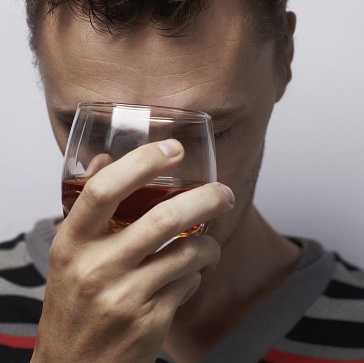Can An Anti-Seizure Drug Help Reduce Alcohol Consumption?
Medication commonly plays an important role in the effective treatment of alcoholism (one of the two overlapping conditions that constitute alcohol use disorder). Some of the medication options in use were specifically designed to help people affected by problematic alcohol use, while others were originally designed for the treatment of non-alcohol-related health concerns.
In a study published in April 2014 in The American Journal of Drug and Alcohol Abuse, researchers from the Boston University School of Medicine explored the potential usefulness of an anti-seizure medication called ezogabine or retigabine as a treatment for people diagnosed with alcoholism.
Medications For Alcoholism Treatment
 Doctors have four main medication options for helping people affected by alcoholism. Two of these options, disulfiram (Antabuse) and acamprosate (Campral), were developed primarily for alcohol-related treatment. Pharmaceutical researchers initially developed the third option, naltrexone (ReVia, Vivitrol), as a treatment for people diagnosed with opioid addiction. The fourth option, topiramate (Topamax), was originally intended to help individuals affected by certain types of seizure disorders.
Doctors have four main medication options for helping people affected by alcoholism. Two of these options, disulfiram (Antabuse) and acamprosate (Campral), were developed primarily for alcohol-related treatment. Pharmaceutical researchers initially developed the third option, naltrexone (ReVia, Vivitrol), as a treatment for people diagnosed with opioid addiction. The fourth option, topiramate (Topamax), was originally intended to help individuals affected by certain types of seizure disorders.
The U.S. Food and Drug Administration has officially approved disulfiram, acamprosate and naltrexone as alcoholism treatments. The FDA has not approved topiramate for alcoholism treatment; however, doctors can still prescribe this medication as an unofficial or “off-label” option.
Unique Results
Each of the current medication options for alcoholism produces results in its own distinct way. For example, disulfiram deters drinking by slowing down the body’s ability to process alcohol and sharply exaggerating the unpleasant symptoms associated with excessive alcohol consumption. Acamprosate helps ease some of the worst symptoms of alcohol withdrawal by making certain changes in the brain’s chemical balance.
Naltrexone helps block the nerve receptors that normally give opioid narcotic substances access to the brain; for reasons that are not entirely clear, this action also interferes with the pleasure derived from alcohol consumption and reduces the strength of cravings for more alcohol intake. Topiramate helps reduce any overactivity in the brain’s nerve cells; although no one really knows why, this reduction also diminishes the strength of alcohol cravings and helps lower the risks for participation in excessive drinking.
Outside of the U.S., ezogabine is also commonly known as retigabine. Its brand name within the U.S. is Protiga. Like topiramate, ezogabine belongs to a group of medications called anti-seizure medications or anticonvulsants. Doctors typically use the medication as part of a larger course of treatment for adults affected by seizures called partial onset seizures, which remain localized in one part of the brain rather than branching out and producing more widespread effects. Ezogabine comes in tablet form.
Ezogabine In Alcoholism Treatment
In the study published in The American Journal of Drug and Alcohol Abuse, the researchers from the Boston University School of Medicine used laboratory experiments on rats to investigate the usefulness of ezogabine (retigabine) as a treatment for alcoholism. These researchers had previously explored the potential usefulness of other types of anti-seizure medications and chose to focus on ezogabine because the medication works in a fairly unique way inside the brain.
During the study, the researchers gave ezogabine to two groups of rats for three days. One of these groups had access to a 10 percent solution of pure drinking alcohol, while the other group had access to a 5 percent alcohol solution. A comparison group of rats received a placebo instead of ezogabine. After comparing the outcomes in the three groups, the researchers concluded that the rats given ezogabine significantly reduced their alcohol intake over the course of the study.
The authors note that the therapeutic dose of ezogabine given to the rats in the project was quite close to the dose capable of producing an unwanted loss of muscle control. This means that, in human beings, the amount of the medication needed to help recovering alcoholics curb their drinking may not differ much from the amount capable of causing harm. Citing this finding, the study’s authors call for more research to investigate the specific effects that ezogabine has inside the central nervous system (brain and spinal cord). In addition, they feel that their ezogabine-related work can play an important role in the search for other medications that work in a similar way and may ultimately provide unique benefits in alcoholism treatment.
Call Us Now For Alcohol Abuse Help! We Are Here For You 24/7!



